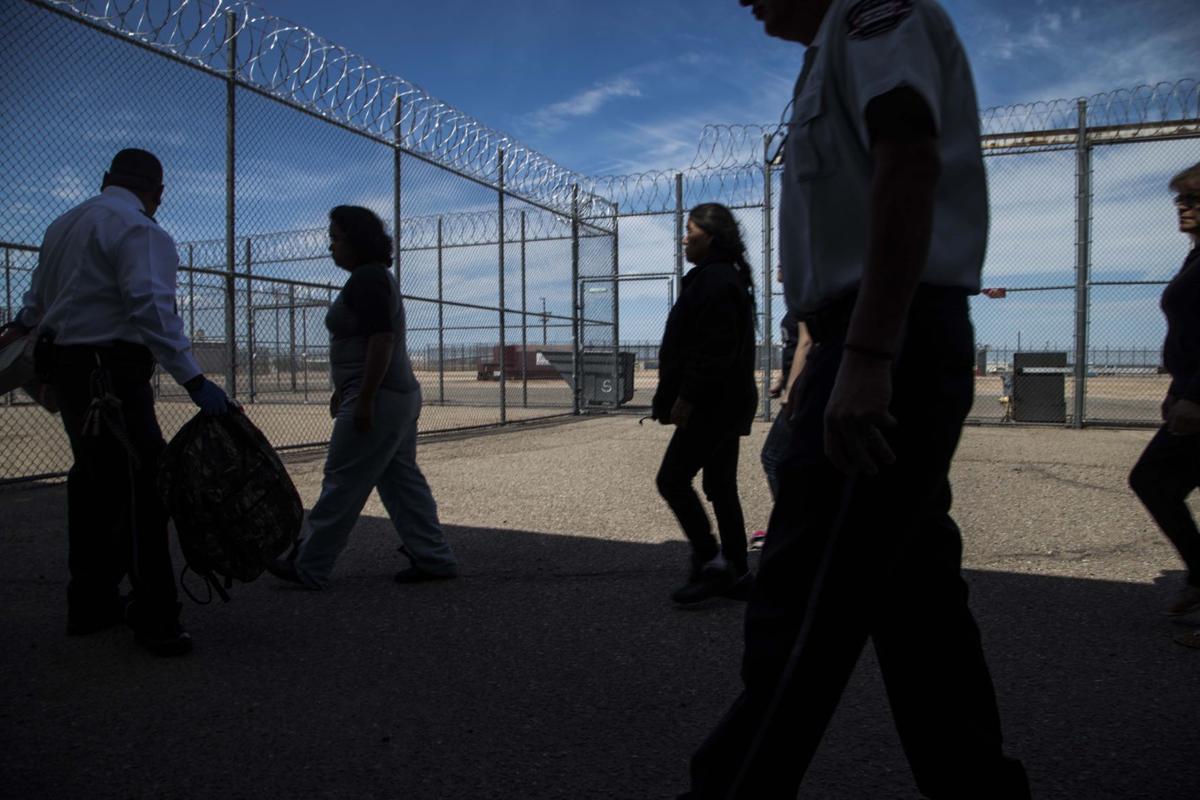Immigration and Customs Enforcement pays the city of Eloy $438,000 to be an “unnecessary middleman” between the federal agency and a private company for a detention center 900 miles away, a government watchdog found.
In September 2014, ICE needed to establish a family detention center in South Texas in response to increasing numbers of families and unaccompanied minors showing up at the border. Instead of contracting specifically with Corrections Corporation of America, now called CoreCivic, or with another state or local government closer to Dilley, Texas, ICE modified an existing agreement with Eloy.
The modification was improper for two reasons, the Office of Inspector General said in a recent report: the terms were negotiated directly with the private company, which is a subcontractor, instead of with Eloy, which is the party legally responsible for the agreements. Second, it said, the addition of family detention services was outside the scope of the original agreement. The 2006 agreement was to house up to 1,500 adult immigration detainees.
The report also cited ICE’s lack of written procedures or guidelines regarding these types of agreements, called intergovernmental service agreements, which means ICE “may have overpaid for detention services in South Texas as well as other detention facilities. Moreover, ICE has no assurance that it executed detention center contracts in the best interest of the federal government, taxpayers or detainees.”
While ICE’s acting director agreed with the second point and said he will make sure to implement federal guidelines, he said he did not believe the modification of the Eloy agreement was improper or illegal.
Thomas Homan, interim head of ICE, said the report “does not acknowledge the unique circumstances and challenges ICE faced in responding to the 2014 surge of families crossing the border, an unprecedented situation which persists to this day.”
He added that while the acquisition of beds through this particular agreement “may not be well understood outside the immigration enforcement community, it is by no means improper or illegal.”
In fiscal 2014, nearly 70,000 family units — a child and at least one parent — and another close to 70,000 unaccompanied minors arrived at the Southwest border without immigration status, the majority through Texas. While the numbers decreased the following year, they have since risen again to close to 76,000 family units apprehended last fiscal year and another 41,000 unaccompanied minors.
In July 2014, ICE asked two major private companies that run detention centers to submit proposals to house families and unaccompanied minors, but only CCA responded.
ICE negotiated with the company against the advice of the agency’s commercial and administrative law division, which wrote a memorandum “warning the director and head of contracting that the South Texas modification was not legally advisable,” the Office of Inspector General reported.
On Sept. 22 of that year, CCA officials attended Eloy’s City Council meeting to request approval to modify their contract to operate the 2,400-bed facility, now the largest detention center in the nation.
Eloy had to approve the amendment because it had to increase the maximum expenditure limit from about $78 million to $368 million, city officials said, out of which $290 million would be pass-through money from ICE to CCA for managing the South Texas center.
The city would financially benefit from this contract, some city officials said, by receiving 25 cents per day, per bed, by serving as the fiscal agent for the additional funds — in addition to the 25 cents per day and bed the city already gets under the original contract.
But the money didn’t seem enough to then-Mayor J.R. Nagy, who wanted to see it rise to $1 per day and bed “due to the extra obligations and risks the city may be undertaking,” according to the meeting’s minutes.
After an executive session, CCA officials said they had gotten corporate approval to increase the rate to 50 cent per day, per bed, which brought the total to about $438,000 per year regardless of how many beds are occupied.
CCA officials said the council had to approve the amendment that same day, given that the funds needed to be appropriated for the project before the end of the fiscal year on Sept. 30.
As of September 2016, ICE paid about $261 million to house families and unaccompanied minors in the South Texas facility, the Officer of Inspector General reported.
In response to the OIG’s cost concerns, Homan said: “Through four weeks of negotiations prior to award, ICE achieved price reductions and was able to eliminate some elements of risk.”
In fiscal 2016, ICE got about $2.3 billion to house detainees in 203 detention facilities throughout the country, five of which the agency owns and operates, the OIG reported.
For the rest, ICE contracts with private companies and establishes the intergovernmental agreements with other agencies including the U.S. Marshals Service and state and local governments.





